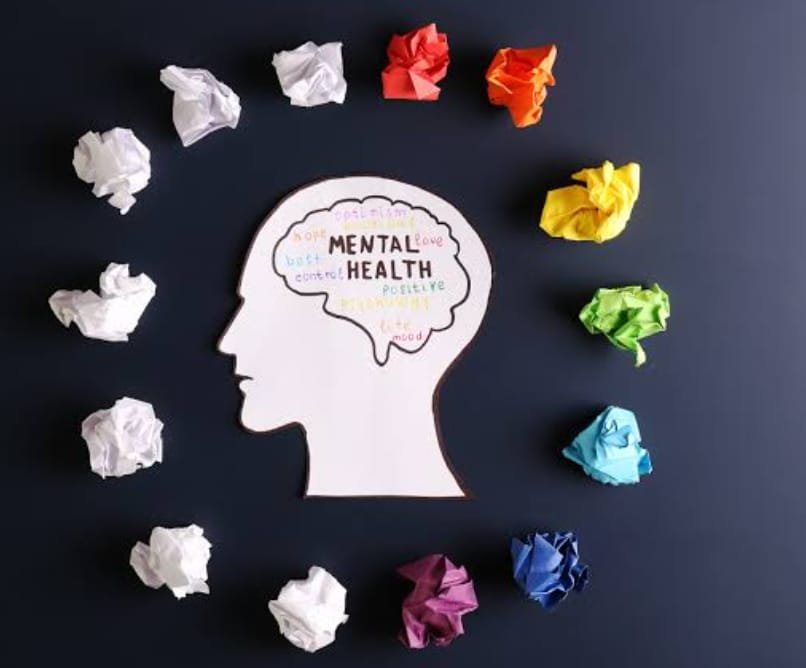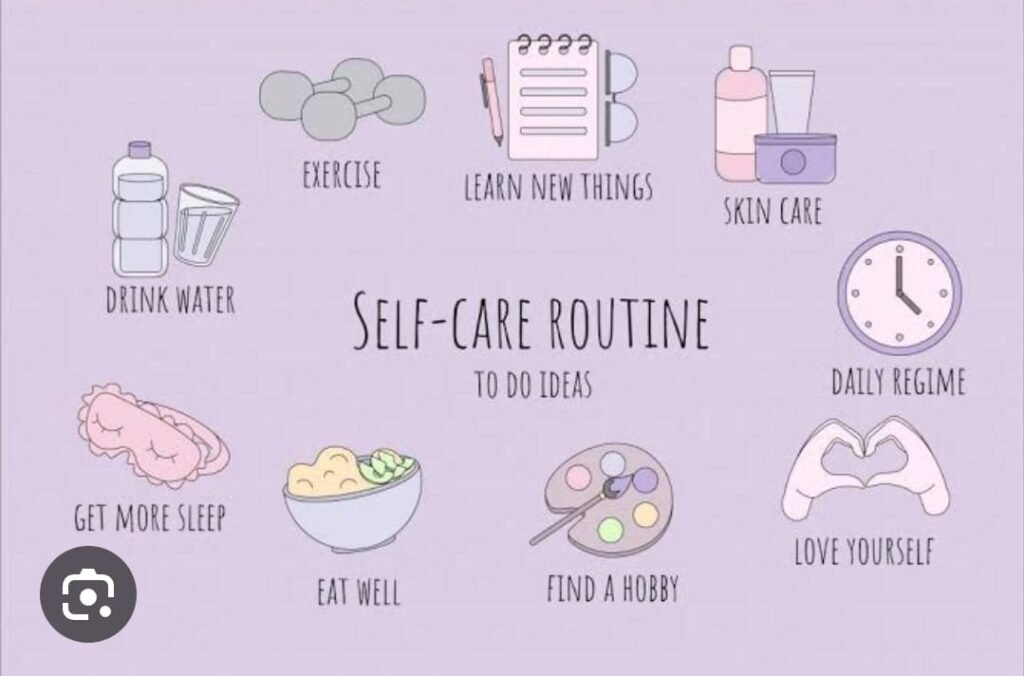MENTAL HEALTH AND SELF CARE IS IMPORTANT
TRENDING TOPIC NOWADAYS
MENTAL HEALTH AND SELF CARE IS IMPORTANT
Certainly! Mental health and self-care are crucial topics. Currently, there’s a growing awareness about the importance of mental well-being. Practices like mindfulness, meditation, and setting boundaries are trending as effective self-care methods.
It’s also notable that destigmatizing conversations around mental health issues is gaining traction, encouraging people to seek help when needed. Stay informed and consider incorporating these practices into your routine for a healthier mindset.
MENTAL HEALTH
Mental health refers to a person’s emotional, psychological, and social well-being. It encompasses various aspects of life, including how individuals think, feel, and act. Good mental health contributes to effective functioning in daily activities, healthy relationships, and the ability to handle stress or adversity. It is not just the absence of mental disorders but also involves maintaining a positive state of mental well-being. Taking care of mental health involves practices such as self-care, seeking support when needed, and adopting strategies to manage stress and challenges.
MENTAL HEALTH AND SELF CARE IS IMPORTANT

HOW TO DEAL WITH MENTAL HEALTH
Dealing with mental health involves a combination of self-care practices, seeking support, and adopting healthy lifestyle habits. Here are some general tips:
- Self-Care: Prioritize self-care activities such as regular exercise, sufficient sleep, and healthy eating. Engage in activities you enjoy, and make time for relaxation and leisure.
- Social Connections: Maintain strong social connections. Share your thoughts and feelings with trusted friends or family members. Building a support network is crucial.
- Professional Help: If you’re struggling, don’t hesitate to seek professional help. A mental health professional, such as a therapist or counselor, can provide guidance and support.
- Mindfulness and Relaxation Techniques: Practice mindfulness, meditation, or deep-breathing exercises to manage stress and promote a sense of calm.
- Set Realistic Goals: Break tasks into manageable steps and set realistic goals. Celebrate your achievements, no matter how small, and be compassionate toward yourself.
- Healthy Lifestyle: Pay attention to your physical health. Regular exercise, a balanced diet, and adequate sleep contribute to overall well-being.
- Limit Stressors: Identify and manage sources of stress in your life. Learn to set boundaries, say no when necessary, and prioritize tasks.
- Hobbies and Creativity: Engage in activities that bring joy and fulfillment. Hobbies, creative pursuits, and leisure activities can provide a positive outlet for emotions.
- Educate Yourself: Learn about mental health and well-being. Understanding your own mental health can empower you to make informed choices.
- Stay Connected: Stay connected with your emotions and thoughts. Journaling can be a helpful way to express and process your feelings.
Remember that everyone’s journey is unique, and it’s okay to ask for help. If you’re experiencing persistent or severe symptoms, consulting with a mental health professional is essential.
MENTAL HEALTH AND SELF CARE IS IMPORTANT

SELF CARE
Self-care refers to intentional actions and practices that individuals engage in to promote their physical, mental, and emotional well-being. It involves taking time for oneself to address one’s own needs and reduce stress. Self-care activities can vary widely and are unique to each person, but they generally aim to foster a sense of balance and overall health. Examples of self-care include:
- Physical Self-Care: Exercise, adequate sleep, healthy eating, and regular medical check-ups.
- Emotional Self-Care: Expressing emotions, setting boundaries, practicing self-compassion, and engaging in activities that bring joy.
- Mental Self-Care: Mindfulness, meditation, reading, learning new skills, and challenging negative thoughts.
- Social Self-Care: Building and maintaining healthy relationships, spending time with loved ones, and nurturing social connections.
- Spiritual Self-Care: Engaging in practices that align with personal beliefs, whether through prayer, meditation, or connecting with nature.
- Professional Self-Care: Setting boundaries at work, taking breaks, and ensuring a healthy work-life balance.
- Recreational Self-Care: Pursuing hobbies, spending time on activities you enjoy, and taking breaks to relax and unwind.
It’s essential to recognize that self-care is not selfish; rather, it’s a vital aspect of maintaining overall well-being. Incorporating self-care into your routine can contribute to increased resilience, improved mental health, and a better ability to cope with life’s challenges.
MENTAL HEALTH AND SELF CARE IS IMPORTANT

WHY ITS IMPORTANT AND NECESSARY
Self-care is important and necessary for several reasons:
- Mental and Emotional Well-Being: Engaging in self-care practices helps reduce stress, anxiety, and burnout. It contributes to emotional resilience and provides a buffer against the challenges of life.
- Physical Health: Prioritizing self-care, such as getting enough sleep, exercising, and maintaining a healthy diet, positively impacts physical health. This, in turn, supports overall well-being and can prevent health issues.
- Enhanced Productivity: Taking time for self-care can lead to increased focus, creativity, and productivity. Regular breaks and moments of relaxation contribute to improved cognitive function.
- Balanced Life: Self-care helps individuals maintain a balance between various aspects of life, including work, relationships, and personal time. This balance is crucial for sustained happiness and fulfillment.
- Improved Relationships: When individuals take care of their own well-being, they are better equipped to engage positively in relationships. This includes setting healthy boundaries and being present for others.
- Prevention of Burnout: Consistent self-care can prevent burnout, which is common in demanding or stressful situations. Taking breaks and nurturing oneself can sustain energy levels and prevent exhaustion.
- Enhanced Resilience: Regular self-care builds resilience, enabling individuals to bounce back from challenges and setbacks more effectively.
- Mindfulness and Self-Awareness: Practices like meditation and mindfulness, often part of self-care routines, foster self-awareness and a deeper understanding of one’s thoughts and emotions.
- Long-Term Health Benefits: Establishing healthy habits through self-care contributes to long-term health and can reduce the risk of chronic conditions.
- Self-Compassion: Self-care involves treating oneself with kindness and understanding. It encourages self-compassion, which is vital for mental and emotional health.
Ultimately, self-care is a proactive approach to maintaining one’s overall health and well-being, ensuring that individuals are better equipped to navigate the complexities of life with resilience and vitality.
WHAT TO DO
Engaging in self-care in the United States involves incorporating practices that suit your individual needs and preferences. Here are some general tips on how to do self-care in the U.S.:
- Identify Your Needs: Reflect on your physical, emotional, and mental needs. Consider what activities bring you joy, relaxation, and a sense of well-being.
- Establish a Routine: Create a daily or weekly routine that includes designated time for self-care activities. This can help make self-care a consistent part of your life.
- Physical Activity: Incorporate regular exercise into your routine. This can be anything from walking and jogging to attending fitness classes or participating in recreational sports.
- Healthy Eating: Pay attention to your diet and nutrition. Aim for a balanced and nutritious diet that supports your overall health.
- Mindfulness and Relaxation: Practice mindfulness or meditation to center yourself and reduce stress. There are many apps, online resources, and local classes that can guide you.
- Explore Nature: Take advantage of outdoor activities. Whether it’s hiking, biking, or simply enjoying a walk in a park, spending time in nature can be rejuvenating.
- Social Connections: Foster and maintain meaningful relationships. Spend time with friends, family, or join social groups to connect with others.
SELF CARE ROUTINE
- Set Boundaries: Learn to say no when necessary. Setting healthy boundaries is crucial for maintaining a balanced life.
- Leisure Activities: Engage in hobbies and activities that you enjoy. Whether it’s reading, art, music, or any other interest, allocate time for things that bring you happiness.
- Professional Boundaries: Establish boundaries at work to prevent burnout. Take breaks, use your vacation time, and prioritize a healthy work-life balance.
- Health Check-ups: Regularly visit healthcare professionals for check-ups and screenings. Prioritizing your physical health is an integral part of self-care.
- Self-Reflection: Take time for self-reflection. Journaling or quiet contemplation can help you process your thoughts and emotions.
Remember, self-care is a personal journey, and what works for one person may not work for another. Customize your self-care routine based on your preferences and needs, and be consistent in making time for your well-being.
MENTAL HEALTH AND SELF CARE IS IMPORTANT


I am a content writer I have experience been writing news and blog articles for 5 years.
1 thought on “MENTAL HEALTH AND SELF CARE IS IMPORTANT”